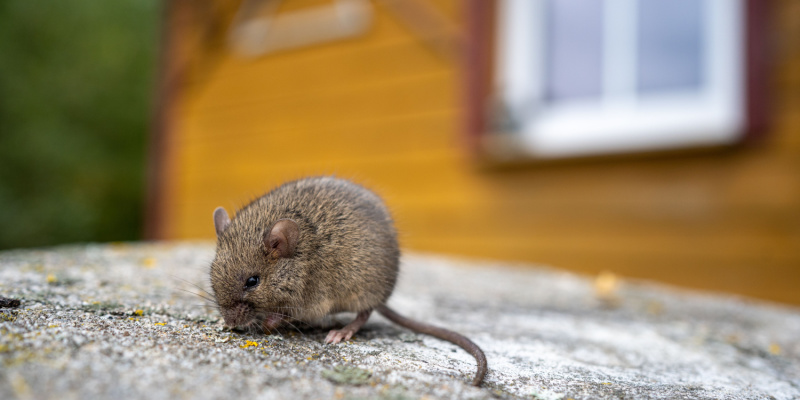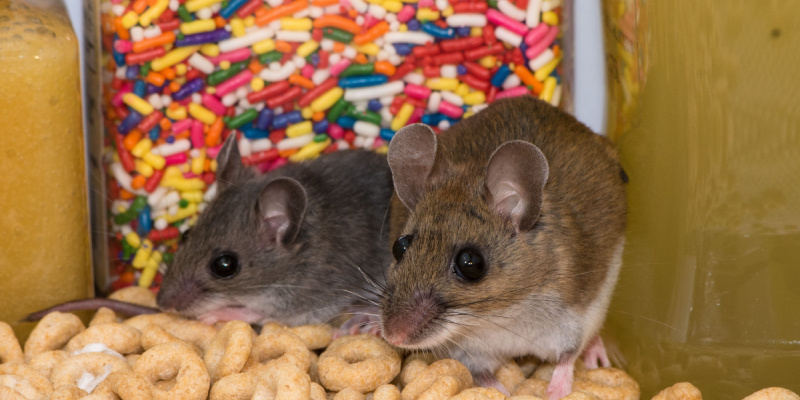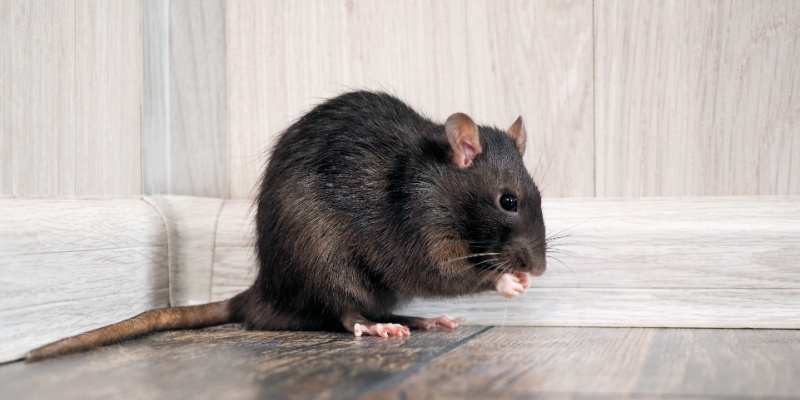Mice, with their tiny, furry bodies and insatiable curiosity, may seem cute in a Disney movie, but they are far less charming when they take up residence in your home. These tiny rodents can cause damage to your property, contaminate your food, and pose health risks through the spread of diseases. Fortunately, there are steps you can take to keep mice from invading your home. This article will look at effective strategies for preventing mice infestations.
1. Seal Entry Points
The first line of defense against mice is to seal off potential entry points. Mice can squeeze through surprisingly small openings, so it’s crucial to identify and close any gaps in your home’s exterior. Here are some areas to check:
- Cracks and Holes
Inspect your home’s foundation, walls, and exterior for cracks or holes. Use caulk or steel wool to seal these openings.
- Doors and Windows
Ensure that doors and windows have proper seals. Replace weather stripping if it’s worn or damaged.
- Vents and Chimneys
Use mesh screens or vent covers to block access points to vents and chimneys.
- Garage Doors
Make sure your garage door closes tightly and install a bottom seal if necessary.
2. Maintain Cleanliness
Mice are attracted to food sources and shelter. Keeping your home clean and tidy can discourage them from setting up camp in your space. Here’s what you can do:
- Store Food Securely
Keep food items, including pet food, in airtight containers. Mice can chew through cardboard and plastic, so consider using glass or metal containers.
- Regular Cleaning
Wipe down countertops, sweep floors, and clean up crumbs and spills promptly. Mice are opportunistic feeders who take advantage of even the tiniest food remnants.
- Trash Management
Use sealed trash cans, and don’t leave bags of garbage sitting around. Empty trash regularly, and consider keeping it in a lidded bin outdoors.
3. Remove Clutter
Mice love clutter as it provides them with hiding spots and nesting materials. By decluttering your home, you reduce potential hiding places for these rodents. Focus on the following areas:
- Basements and Attics
Clear out unused items and store belongings in plastic bins, not cardboard boxes, which mice can easily chew through.
- Garages and Sheds
Organize and declutter these areas to minimize hiding spots.
4. Trim Vegetation
Mice often use overgrown vegetation as a bridge to access your home. Trim bushes, trees, and shrubs near your house to eliminate these pathways. Additionally, keep firewood and stacks of debris away from your home’s exterior.
5. Install Door Sweeps
Mice can sneak into your home through gaps under doors. Install door sweeps on exterior doors to seal the gap between the door and the floor, leaving no entry points for mice.
6. Pet Deterrent
Cats and dogs can be effective deterrents to mice. Their presence and scent can deter mice from entering your home. If you have pets, allow them access to areas where mice might enter or nest, such as basements and attics.
7. Use Mouse Traps and Bait Stations
In some cases, it’s advisable to use mouse traps and bait stations as a preventive measure. Place traps and stations where you suspect mouse activity or along common mouse pathways. Be sure to use appropriate bait, such as peanut butter or cheese, to lure them.
8. Regularly Inspect Your Home
Mice are excellent at hiding, so it’s essential to conduct regular inspections to identify signs of their presence. Look for the following indicators:
- Droppings
Mouse droppings are small, dark, and pellet-like. They are often found along walls or near food sources.
- Gnaw Marks
Mice have sharp front teeth and often leave gnaw marks on wood, plastic, or electrical wiring.
- Nesting Materials
If you find shredded paper, fabric, or insulation in unusual places, it may indicate a mouse nest.
- Scurrying Noises
Mice are active at night, and you may hear them scurrying or scratching in walls, ceilings, or behind appliances.
- Urine Odor
Mouse urine has a distinctive, unpleasant odor. If you notice a strong, musty smell, it could be a sign of mouse activity.
9. Seek Professional Pest Control
If you’ve tried preventive measures but still have a mouse problem, it’s time to consider professional pest control services. Pest control professionals have the expertise and tools to eliminate existing infestations and prevent future ones.
10. Keep Outdoor Areas Clean
Mice can also be attracted to outdoor areas that provide food and shelter. To prevent them from getting too close to your home, follow these guidelines:
- Clean up Bird Feeders: Birdseed can attract mice. Clean up spilled seed regularly, and consider using feeders that minimize spillage.
- Store Firewood Away: Keep firewood and other outdoor items well away from your home’s exterior.
- Secure Trash Bins: Ensure that outdoor trash bins are sealed tightly.
Preventing mice from invading your home requires a combination of proactive measures and regular maintenance. Regular inspections and quick action by calling All Pest Solutions if you suspect mouse activity is also crucial. Remember, the key to successful mouse prevention is to make your home as unattractive and inaccessible to them as possible. With these strategies in place, you can enjoy a mouse-free living environment and protect your property from potential damage and health risks.



